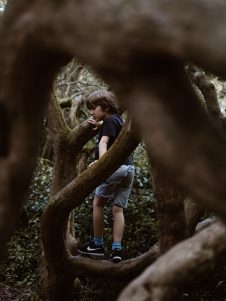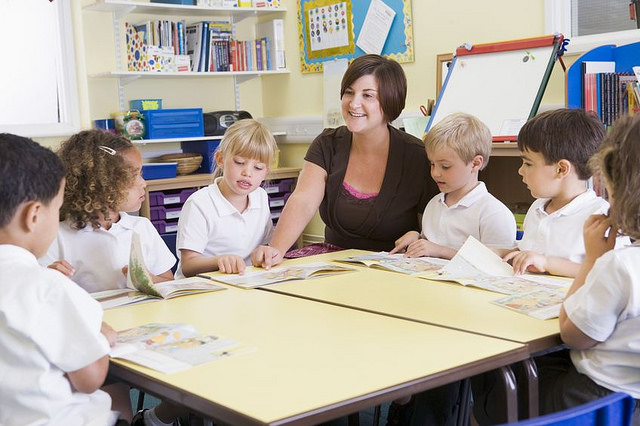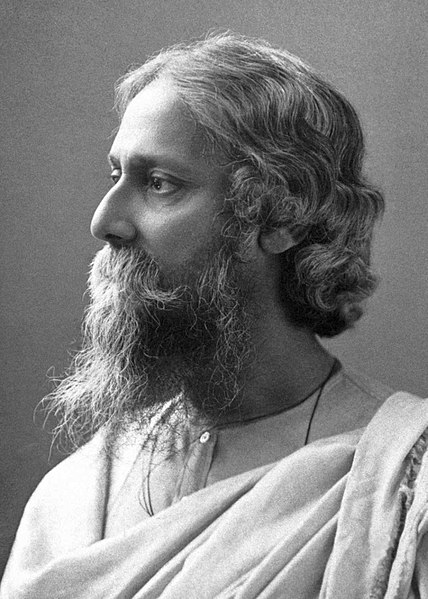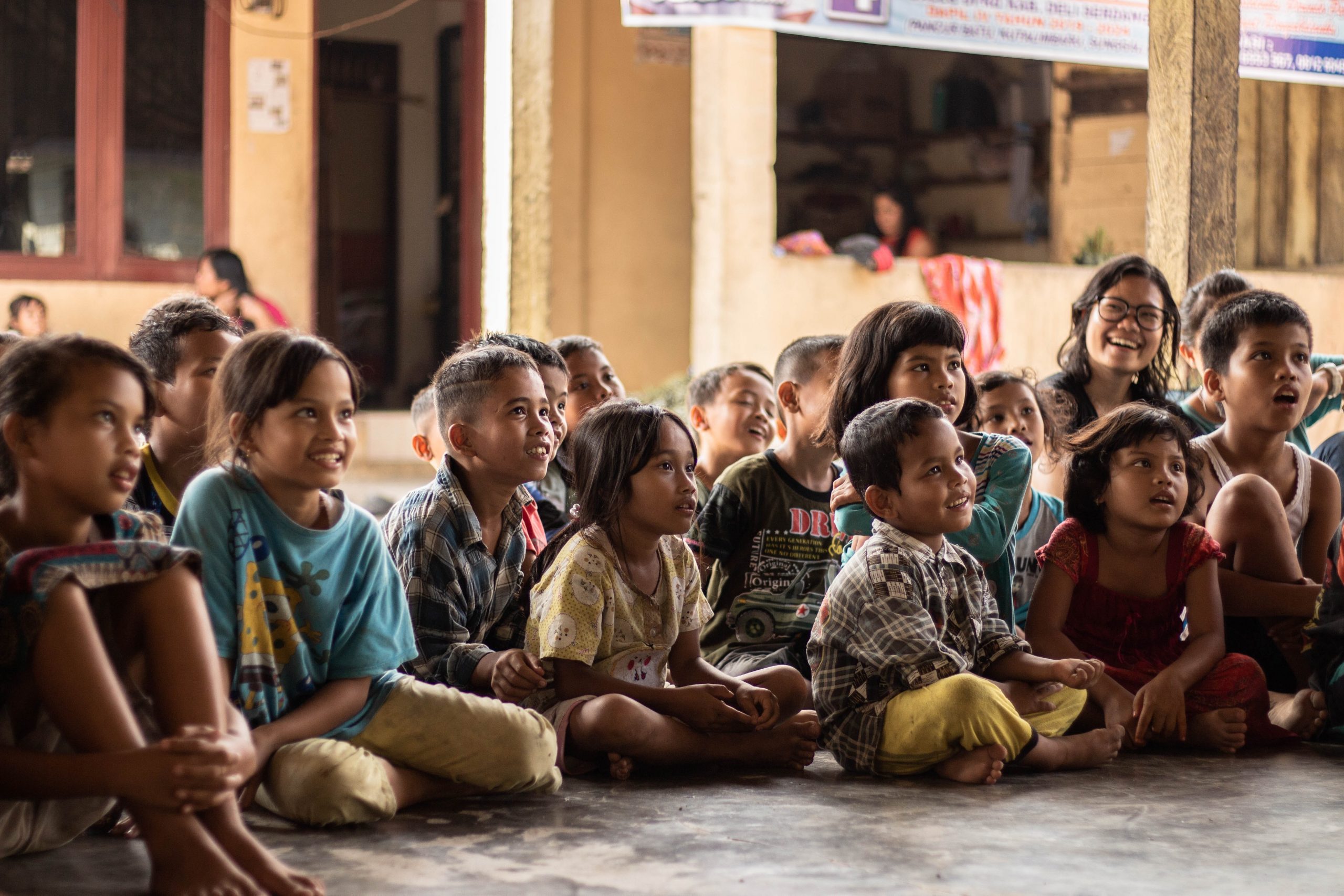A Parent’s Search for New Education
Article By Riddhi Patel
 What is it about a musician or a doctor that makes him more than a simple technician, one that has developed an expert ability to discharge a particular skill? Beyond the mechanics of these professions, we may find a sincere pursuit of something higher; values such as Beauty, Harmony and Goodness. This came to light for me when I started looking for schools for my children; it was clear for me that practical experience and confidence in these values superseded everything else. I realized also, that education is a key component in every aspect of a child’s life. At home, with the family, the child learns by way of example set by the adults. Additionally, it was important for me that my children learn from the vastness of nature, that they are not the centre of the world; that instead they are themselves an integral part of nature. It was important for me that they arrive at the question of their own role in the diverse and beautiful orchestra of life. What then was to be the role of the school I selected as they came of age?
What is it about a musician or a doctor that makes him more than a simple technician, one that has developed an expert ability to discharge a particular skill? Beyond the mechanics of these professions, we may find a sincere pursuit of something higher; values such as Beauty, Harmony and Goodness. This came to light for me when I started looking for schools for my children; it was clear for me that practical experience and confidence in these values superseded everything else. I realized also, that education is a key component in every aspect of a child’s life. At home, with the family, the child learns by way of example set by the adults. Additionally, it was important for me that my children learn from the vastness of nature, that they are not the centre of the world; that instead they are themselves an integral part of nature. It was important for me that they arrive at the question of their own role in the diverse and beautiful orchestra of life. What then was to be the role of the school I selected as they came of age?
Interestingly, such a philosophical orientation as an axis of education is an age-old tradition. In the ancient Gurukuls, for example, students would live under a master’s guidance, to cultivate a holistic way of life beyond just skill building. Today, however, it seems that the academic system offered in most schools serves primarily to prepare a child for a successful career, to make money, as the prime priority. For me, many of the challenges of our world today are a result of this materialistic premise. Therefore there was a need for me to find a way to include a philosophical perspective early in my children’s life, without which I was concerned that they may not learn how to be good human beings, driven by human values.
In my observation, children are very intuitive. It is due to conditioning and external pressure that many don’t ever have the chance to bring out their true nature. If given a chance and left alone to explore on their own, I have observed that they learn a lot from nature and this learning stays with them, as it comes out of their own realization from a personal investigation and connection with the world. It is as if we just need to stop interfering with too many instructions and expectations; let their own curiosity and creativity flow.
Unfortunately today children are often driven by the insecurity and anxiety of their parents to get a seat in a reputed school, or to be better than another kid, etc. This forces them to attend various classes robbing the child of time and space to absorb and assimilate the knowledge s/he receives, to reflect on it, practically apply, experiment and connect it to his own life.
To determine the role of a school then, let us start with the investigation of the root of the word ‘education’, which comes from the Latin word educere, which literally means to bring out from within. This implies that instead of molding from the outside by gathering endless amounts of information, we need to shed the unnecessary for the potential to come out. And so, I expected a school to be able to pay attention to the need and potential of each child. Different age groups have different needs as per the natural development of a child. In addition, some might have an affinity towards the arts, while others towards building or engineering. A school must allow the child to explore his own gifts, and also challenge those faculties that perhaps require more effort. For example, if a child is very good at math and struggling with music, then the teacher could bring math into the music lesson by way of counting the claps and setting the rhythm in such a way that the child ends up loving music because of the math in it, thereby bridging the gap between seemingly different subjects for a single holistic education. In this way, education can be more personalized, creative and fun, keeping the child’s needs in mind. Ultimately, it must cultivate an attitude of curiosity, awaken a love for learning, and the courage to dare to unravel the mysteries of life independently.
I don’t believe that this can be achieved if the pressure of examinations and the fear of competition are the driving forces in the classroom. Instead, we must foster competition only with oneself, to drive each one to be better than he/she was yesterday and enrich the education by way of cultivating human values. It is my hope that my children will enter the world equipped with self-confidence based on the discovery of their own inner strengths. It is clear that the future is going to remain uncertain; it is important that they are not trained only for specific professions, but are able to adapt to whatever the circumstances may demand with humility and grace.
Image Credits: By Annie Spratt | Unsplash | CC0
The entity posting this article assumes the responsibility that images used in this article have the requisite permissionsImage References
By Annie Sprat | Unsplash | CC0
Permissions required for the publishing of this article have been obtained




What do you think?